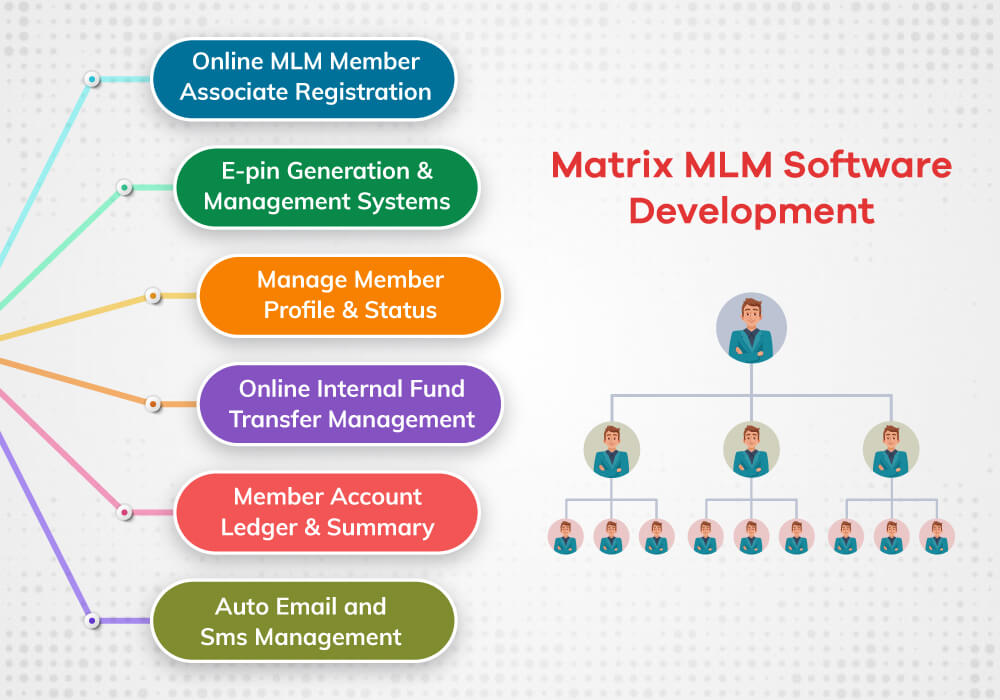What is MLM (Multi Level Marketing) ?
MLM, or multi-level marketing, has become a popular business model that relies on a network of distributors to sell products or services. To effectively manage and streamline the complex operations of MLM businesses, MLM software has emerged as an essential tool.
MLM software refers to specialized software designed to handle various aspects of multi-level marketing. It automates and simplifies tasks such as tracking sales, managing commissions and payouts, monitoring downlines, and analyzing performance metrics.
One of the key features of MLM software is its ability to support different compensation plans. These plans include binary plans, where distributors have two legs; matrix plans, where distributors are organized in a grid structure; single leg plans, where all distributors are placed in a single line; and hybrid plans that combine elements from multiple compensation structures.
By utilizing MLM software, businesses can efficiently manage their network of distributors while ensuring accurate calculations and timely payouts. This technology-driven solution enhances transparency, eliminates manual errors, and provides valuable insights into the performance and growth of the MLM organization.

Key Functionalities of MLM Software
-
Distributor Management: MLM companies typically have a large network of distributors or representatives. MLM software helps manage this network by tracking distributor profiles, performance, and hierarchies. It allows for easy onboarding, monitoring, and communication with distributors.
-
Compensation Plans: MLM businesses often have diverse compensation plans, such as binary, matrix, or unilevel structures. MLM software automates commission calculations based on these plans, ensuring accurate and timely payouts to distributors.
-
Sales and Inventory Tracking: MLM software helps track product sales, inventory levels, and order processing. This ensures that MLM companies can manage their product catalog efficiently and prevent stockouts or overstock situations.
-
E-commerce Integration: Many MLM companies have online stores to complement their network marketing efforts. MLM software often includes e-commerce features, allowing distributors and customers to purchase products seamlessly through digital platforms.
-
Reporting and Analytics: MLM software generates detailed reports and analytics that provide insights into distributor performance, sales trends, and overall business health. These insights help MLM companies make informed decisions and adjust their strategies accordingly.
-
Communication Tools: Effective communication is essential in MLM businesses. MLM software often includes communication tools like email, chat, or messaging features to facilitate direct communication between the company and its distributors.
-
Security and Compliance: MLM software ensures data security and compliance with industry regulations. It safeguards sensitive information and helps MLM companies maintain transparency and legality in their operations.
Conclusion
In the fast-paced world of network marketing, MLM software is the linchpin that keeps MLM businesses organized, efficient, and competitive. With its diverse functionalities and benefits, MLM software empowers companies to manage their operations effectively, foster distributor success, and ultimately achieve their business goals. As the network marketing landscape continues to evolve, having robust MLM software becomes increasingly essential for staying ahead of the curve.


